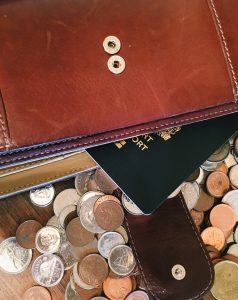Forex trading, also known as foreign exchange trading or currency trading, refers to the buying and selling of currencies with the aim of making a profit. Retail forex, on the other hand, is a form of forex trading that allows individual traders to participate in the market using online trading platforms. In this article, we will explore the workings of retail forex, including the key players, trading platforms, and the risks and rewards involved.
Key players in retail forex
Retail forex involves several key players who play different roles in the market. These include:
1. Forex brokers: These are companies that provide online trading platforms and other tools that traders use to access the forex market. Brokers make money by charging a commission on each trade or by taking a small markup on the spread (the difference between the bid and ask price).
2. Market makers: These are financial institutions that provide liquidity to the forex market by buying and selling currencies. Market makers earn a profit by charging a markup on the spread.
3. Traders: These are individual investors who use online trading platforms to buy and sell currencies with the aim of making a profit. Traders can be classified into two categories: retail traders and institutional traders. Retail traders are individuals who trade on their own behalf, while institutional traders represent large financial institutions such as hedge funds and banks.
Trading platforms
Retail forex traders use online trading platforms to access the market. These platforms are provided by forex brokers and allow traders to buy and sell currencies using a computer or mobile device. Some popular trading platforms include:
1. MetaTrader 4: This is a popular trading platform that is widely used by forex traders. It offers a range of technical analysis tools, customizable charts, and the ability to automate trades using Expert Advisors (EAs).
2. cTrader: This is another popular trading platform that offers advanced charting tools, order management features, and the ability to trade multiple asset classes.
3. NinjaTrader: This is a trading platform that is popular among futures traders, but also supports forex trading. It offers advanced charting tools, backtesting capabilities, and the ability to automate trades using NinjaScript.
How does retail forex trading work?
Retail forex trading involves buying and selling currency pairs with the aim of making a profit. Currency pairs are quoted in two prices: the bid price (the price at which you can sell the currency pair) and the ask price (the price at which you can buy the currency pair). The difference between the bid and ask price is known as the spread.
When a trader buys a currency pair, they are speculating that the base currency (the first currency in the pair) will appreciate in value relative to the quote currency (the second currency in the pair). Conversely, when a trader sells a currency pair, they are speculating that the base currency will depreciate in value relative to the quote currency.
Traders can place different types of orders on their trading platform, including:
1. Market orders: These are orders to buy or sell a currency pair at the current market price.
2. Limit orders: These are orders to buy or sell a currency pair at a specific price.
3. Stop-loss orders: These are orders to automatically close a trade if the price moves against the trader by a certain amount.
Risks and rewards
Retail forex trading offers the potential for high returns, but also comes with significant risks. Some of the key risks include:
1. Volatility: Currency prices can be highly volatile, which can lead to significant losses if a trader’s position moves against them.
2. Leverage: Forex brokers offer high levels of leverage, which means that traders can control large positions with a small amount of capital. While this can amplify profits, it can also lead to large losses.
3. Counterparty risk: Retail forex traders are exposed to counterparty risk, which refers to the risk that the forex broker or market maker will go bankrupt or fail to meet their obligations.
Despite these risks, retail forex trading can be highly rewarding for traders who have a solid understanding of the market and a disciplined approach to risk management. With the right strategy and tools, traders can potentially earn significant profits in the forex market.
Conclusion
Retail forex trading is a form of forex trading that allows individual traders to participate in the market using online trading platforms. It involves buying and selling currency pairs with the aim of making a profit. Retail forex traders use online trading platforms provided by forex brokers to access the market. While retail forex trading offers the potential for high returns, it also comes with significant risks, including volatility, leverage, and counterparty risk. Traders who have a solid understanding of the market and a disciplined approach to risk management can potentially earn significant profits in the forex market.






